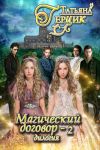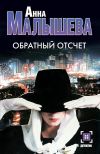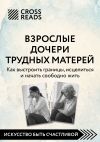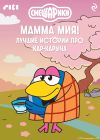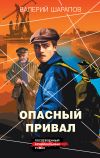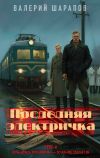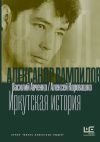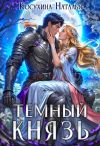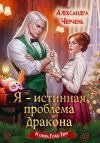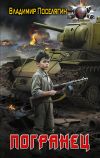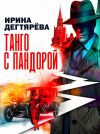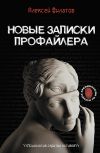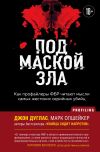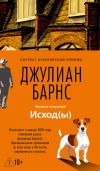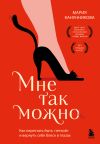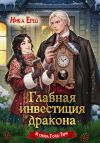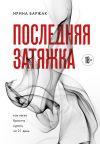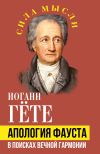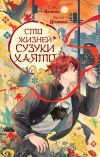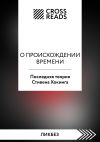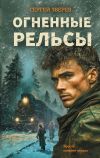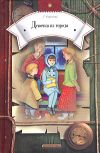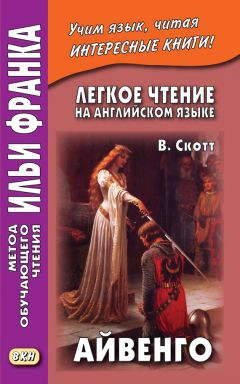
Автор книги: Вальтер Скотт
Жанр: Иностранные языки, Наука и Образование
Возрастные ограничения: +12
сообщить о неприемлемом содержимом
Текущая страница: 4 (всего у книги 17 страниц) [доступный отрывок для чтения: 4 страниц]
might [maɪt], lion-hearted [,laɪǝn’hɑ:tɪd], exclaim [ɪk’skleɪm]
“It might be the King,” said Waldemar Fitzurse, one of Prince John’s closest allies. “It might be King Richard the Lionhearted himself!”
“What!” Prince John exclaimed and turned as pale as death. He shook as if he had been struck by lightning.
“It cannot be the King (это не может быть король),” said De Bracy calmly (сказал де Браси спокойно). “Look at him more closely, and you will see (взгляните на него более внимательно и вы увидите; closely – близко; вплотную; внимательно, тщательно) that your brother is a much bigger man than this knight (что ваш брат гораздо более крупный мужчина, чем этот рыцарь; big – большой, крупный).”
Prince John could see that this was true (принц Джон увидел, что это была правда), and he presented the war-horse to the Disinherited Knight (и он подарил боевого коня рыцарю Лишенному наследства).
calmly [kɑ:mlɪ], closely [‘klǝʋslɪ], true [tru:], present [prɪ’zent]
“It cannot be the King,” said De Bracy calmly. “Look at him more closely, and you will see that your brother is a much bigger man than this knight.”
Prince John could see that this was true, and he presented the war-horse to the Disinherited Knight.
“Sir Disinherited Knight (сэр рыцарь Лишенный наследства),” he said, “since that is the only name by which we know you (раз это единственное имя, под которым мы знаем вас), you may now choose the Queen of Love and Beauty (вы можете сейчас выбрать королеву любви и красоты). If you are a stranger to our country (если вы чужак в нашей стране; stranger – иностранец, иноземец, чужестранец), may I suggest the daughter of one of our Norman noblemen (позвольте предложить: «могу ли я предложить» дочь одного из наших дворян-норманнов; to suggest – предлагать, советовать).” He hung a gold crown (он повесил золотую корону; crown – венок; венец; корона) on the tip of the Knight’s lance (на острие рыцарского копья; tip – тонкий конец, кончик /пальца, ножа, языка и т. д./; наконечник).
sir [sǝ], stranger [‘streɪndʒǝ], crown [kraʋn]
“Sir Disinherited Knight,” he said, “since that is the only name by which we know you, you may now choose the Queen of Love and Beauty. If you are a stranger to our country, may I suggest the daughter of one of our Norman noblemen.” He hung a gold crown on the tip of the Knight’s lance.
The Disinherited Knight rode straight past all of the blushing Norman ladies (рыцарь Лишенный наследства проскакал прямо мимо всех зардевшихся норманнских дам; past – мимо; blush – румянец; краска стыда, смущения; to blush – краснеть, заливаться румянцем от смущения, стыда) and stopped in front of the Lady Rowena (и остановился перед леди Ровеной), laying the crown at her feet (положив венец у ее ног).
“Long live the Lady Rowena, the Queen of Love and Beauty (да здравствует леди Ровена, королева любви и красоты; long live – да здравствует…)!” shouted the tournament crowd (закричала толпа, /присутствующая/ на турнире).
As he turned to leave (когда он повернулся, чтобы уйти), Prince John’s eyes fell on the archer (взор принца Джона упал на того самого лучника) who had made him angry earlier (который разгневал его раньше).
“Do not let that man leave Ashby (не дайте этому человеку покинуть Эшби),” he told his guards angrily (он сказал своим стражникам сердито; guard – охрана, защита; караул, конвой, охрана, стража /группа людей, охраняющих кого-либо/что-либо/).
straight [streɪt], blushing [‘blʌʃɪŋ], guard [ɡɑ:d]
The Disinherited Knight rode straight past all of the blushing Norman ladies and stopped in front of the Lady Rowena, laying the crown at her feet.
“Long live the Lady Rowena, the Queen of Love and Beauty!” shouted the tournament crowd.
As he turned to leave, Prince John’s eyes fell on the archer who had made him angry earlier.
“Do not let that man leave Ashby,” he told his guards angrily.
When the Disinherited Knight reached his tent (когда рыцарь Лишенный наследства добрался до своего шатра; to reach – протягивать, вытягивать; доезжать до; добираться до), he spoke to his servant (он заговорил со своим слугой), a man in a big black robe (мужчиной в свободном: «большом» черном одеянии).
“Gurth,” said the Knight, “thank you for coming to help me here (спасибо, что пришел помочь мне здесь). I was afraid that someone might recognize you (я боялся, что кто-нибудь может узнать тебя; to recognize – осознавать, постигать; узнавать, опознавать /мелодию, лицо, вообще кого-либо или что-либо виденное, знакомое ранее/).”
“I am not afraid of being recognized by anyone (я не боюсь быть узнанным никем) except my old friend Wamba (кроме моего старого друга Вамбы; except – исключая, кроме, за исключением),” answered Gurth.
robe [rǝʋb], recognize [‘rekǝɡnaɪz], except [ɪk’sept]
When the Disinherited Knight reached his tent, he spoke to his servant, a man in a big black robe.
“Gurth,” said the Knight, “thank you for coming to help me here. I was afraid that someone might recognize you.”
“I am not afraid of being recognized by anyone except my old friend Wamba,” answered Gurth.
“Take this bag of gold to Ashby (возьми = отнеси этот кошель с золотом в Эшби). Find Isaac of York (найди Исаака из Йорка) and pay him back for the horse and armour (и заплати ему за коня и доспехи; to pay back – вознаграждать, отплачивать).”
Gurth took the bag (Гурт взял кошель) and went off to the town of Ashby (и ушел в город Эшби), where he found Isaac and gave him the money (где он нашел Исаака и отдал ему деньги).
find [faɪnd], gold [ɡǝʋld], armour [‘ɑ:mǝ]
“Take this bag of gold to Ashby. Find Isaac of York and pay him back for the horse and armour.”
Gurth took the bag and went off to the town of Ashby, where he found Isaac and gave him the money.
4
At sunrise the next day (на утренней заре следующего дня; sunrise – восход солнца; утренняя заря; утро, начало дня), the heralds were already busy (герольды были уже заняты тем; busy – деятельный, занятой; занятый) writing down the names of the hundred knights (что записывали имена сотни рыцарей; to write down – записывать) who were going to take part in the second day’s battle (которые собирались принять участие в сражении второго дня; to take part – принимать участие, участвовать в чем-либо; battle – битва, сражение, бой). According to the tournament rules (согласно правилам турнира), the Disinherited Knight would lead one side (рыцарь Лишенный наследства возглавлял одну сторону = один отряд рыцарей; to lead – вести, сопровождать; возглавлять, руководить, управлять, командовать; side – сторона; команда /как одна из сторон спортивного состязания/), and the Templar, who was judged to be second-best in the fighting the day before (а рыцарь храма, который был признан вторым: «вторым лучшим» в поединках предыдущего дня; to judge – судить, выносить приговор; оценивать, судить), would lead the other side (возглавлял другую сторону = другой отряд).
sunrise [‘sʌnraɪz], busy [‘bɪzɪ], judge [dʒʌdʒ]
At sunrise the next day, the heralds were already busy writing down the names of the hundred knights who were going to take part in the second day’s battle. According to the tournament rules, the Disinherited Knight would lead one side, and the Templar, who was judged to be second-best in the fighting the day before, would lead the other side.
Around ten o’clock (около десяти часов), the heralds blew their trumpets (герольды затрубили в трубы; to blow – веять, дуть /о ветре/; играть мелодию и т. п. /на духовом инструменте/; давать сигнал /подъема, тревоги и т. п. с помощью трубы, горна и т. п./) to announce the arrival of Prince John (чтобы возвестить о прибытии принца Джона).
When Cedric arrived with the Lady Rowena a moment later (когда Седрик прибыл с леди Ровеной мгновением позже), he was very surprised to see (он был очень удивлен, увидев) that Athelstane had joined the side of the Templar (что Ательстан присоединился к стороне рыцаря храма). Athelstane had secretly been very angry (Ательстан втайне был очень рассержен) to see the Disinherited Knight choose Rowena as the Queen of Love and Beauty the day before (увидев, что рыцарь Лишенный наследства выбрал Ровену королевой любви и красоты накануне; day before – накануне). He was therefore determined (он поэтому был полон решимости; to determine – определять, устанавливать /с помощью расчетов, рассуждений и т. п./; решаться, принимать решение) to punish the Knight for this in the fighting (наказать рыцаря за это в поединке).
arrival [ǝ’raɪv(ǝ)l], surprise [sǝ’praɪz], join [dʒɔɪn], determined [dɪ’tǝ:mɪnd], punish [‘pʌnɪʃ]
Around ten o’clock, the heralds blew their trumpets to announce the arrival of Prince John.
When Cedric arrived with the Lady Rowena a moment later, he was very surprised to see that Athelstane had joined the side of the Templar. Athelstane had secretly been very angry to see the Disinherited Knight choose Rowena as the Queen of Love and Beauty the day before. He was therefore determined to punish the Knight for this in the fighting.
When Prince John saw (когда принц Джон увидел) that the Queen of the tournament had arrived (что королева турнира уже прибыла), he rode forward to meet her (он поскакал /вперед/ навстречу ей: «чтобы встретить ее») and led her to sit beside him in the royal gallery (и повел ее, чтобы посадить ее рядом с собой в королевской галерее; to lead – вести, сопровождать, быть проводником; вести /например, за руку/).
A herald read out the rules for the second day of the tournament (один герольд зачитал правила второго дня турнира; to read out – прочитать вслух): Apart from their lances (кроме копий; apart from – не говоря уже о, кроме, не считая), this time the knights would also be allowed (на этот раз рыцарям также будет позволено; time – время; раз) to use swords and battle-axes (пользоваться мечами и боевыми топорами/алебардами; to use – использовать, пользоваться, применять, употреблять). If a knight had been knocked off his horse (если рыцарь будет сброшен с коня), he could continue fighting on foot (он сможет продолжить сражаться пешим; on foot – пешком), but a mounted horseman would not be allowed to attack him (но /сидящему на коне/ всаднику не будет позволено атаковать его; horseman – всадник; наездник; horse – конь). The fighting would stop (схватка должна будет прекратиться) as soon as Prince John gave the signal (как только принц Джон подаст знак/сигнал).
beside [bɪ’saɪd], battle-axe [‘bætlæks], continue [kǝn’tɪnju:], horseman [‘hɔ:smǝn]
When Prince John saw that the Queen of the tournament had arrived, he rode forward to meet her and led her to sit beside him in the royal gallery.
A herald read out the rules for the second day of the tournament: Apart from their lances, this time the knights would also be allowed to use swords and battle-axes. If a knight had been knocked off his horse, he could continue fighting on foot, but a mounted horseman would not be allowed to attack him. The fighting would stop as soon as Prince John gave the signal.
The knights rode into the lists (рыцари въехали /верхом/ на ристалище) and formed two groups of fifty men (и образовали две группы по пятьдесят человек; to form – придавать форму, придавать вид; составлять, образовывать) at opposite ends of the lists (на противоположных концах арены). They held their lances upright (они держали свои копья вертикально; upright – вертикально, прямо, стоймя) and the points shone brightly in the sun (и /их/ наконечники сверкали ярко на солнце). When the heralds blew their trumpets (когда герольды затрубили в трубы), all the knights lowered their lances (все рыцари опустили свои копья) and galloped towards the centre of the lists (и галопом помчались к центру ристалища).
upright [‘ʌpraɪt], brightly [‘braɪtlɪ], lower [‘lǝʋǝ]
The knights rode into the lists and formed two groups of fifty men at opposite ends of the lists. They held their lances upright and the points shone brightly in the sun. When the heralds blew their trumpets, all the knights lowered their lances and galloped towards the centre of the lists.
The noise could be heard a mile away (шум /сражения/ можно было слышать за милю /от ристалища/; noise – шум, гам, грохот; гвалт, гудение, гул; неприятный звук; away – /отдаленность от данного места/ далеко), and for several minutes no one in the audience (и несколько минут никто из зрителей) could see anything through the great cloud of dust (не мог видеть ничего сквозь огромное облако пыли; cloud – облако; облако, клубы /пыли, дыма и т. п./) that had been raised by the horses’ hoofs (которое было поднято конскими копытами). When the dust had settled again (когда пыль улеглась снова; to settle – усаживать/ся/; укладывать/ся/; устраивать/ся/), half of the knights were lying on the ground (половина из рыцарей лежала на земле). Some of them quickly jumped to their feet (некоторые из них быстро вскочили на ноги) while others, who were wounded more seriously (в то время как другие, которые были ранены более серьезно), were struggling to get out of the lists (пробивались, чтобы выбраться с ристалища; to struggle – бороться; пробиваться; to get out – выходить, вылезать).
noise [nɔɪz], cloud [klaʋd], hoof [hu:f]
The noise could be heard a mile away, and for several minutes no one in the audience could see anything through the great cloud of dust that had been raised by the horses’ hoofs. When the dust had settled again, half of the knights were lying on the ground. Some of them quickly jumped to their feet while others, who were wounded more seriously, were struggling to get out of the lists.
The mounted knights (конные рыцари), whose lances had almost all been broken (чьи копья были почти что все сломаны), continued fighting with their swords (продолжали сражаться на мечах), shouting out war-cries (выкрикивая боевые кличи; war-cry – боевой клич), which were repeated by the excited audience (которые повторялись возбужденной публикой; to excite – возбуждать, волновать). Soon their shining armour (вскоре их блестящие доспехи) was completely covered in blood and dust (были полностью покрыты кровью и пылью). The ladies in the audience clapped and shouted (дамы /сидящие меж/ зрителей хлопали в ладоши и кричали), “Brave lance (храброе копье)! Good sword (искусный меч; good – хороший; искусный, умелый)!” to their favourite knights (своим любимым рыцарям; favourite – излюбленный, любимый, наиболее предпочтительный; возлюбленный).
mounted [‘maʋntɪd], war cry [‘wɔ:kraɪ], blood [blʌd], favourite [‘feɪv(ǝ)rɪt]
The mounted knights, whose lances had almost all been broken, continued fighting with their swords, shouting out war-cries, which were repeated by the excited audience. Soon their shining armour was completely covered in blood and dust. The ladies in the audience clapped and shouted, “Brave lance! Good sword!” to their favourite knights.
“Fight on, brave knights (продолжайте драться, храбрые рыцари; on – указывает на продолжение или развитие действия)!” shouted the heralds (кричали герольды). “Man dies, but glory lives (человек умирает, но слава живет; glory – известность, популярность, слава)! Fight on, death is better than defeat (продолжайте биться, смерть лучше, чем поражение; defeat – проигрыш /в соревновании/; поражение, разгром /в военной баталии/)! Fight on, brave knights (продолжайте сражаться, храбрые рыцари)!”
As the lists slowly became less and less crowded (пока ристалище медленно = постепенно становилось все менее и менее заполненным; crowded – переполненный, битком набитый), the audience could see that the Disinherited Knight and the Templar had finally met (зрители смогли увидеть, что рыцарь Лишенный наследства и тамплиер наконец-то встретились) and were fighting each other (и сражались друг с другом).
fight [faɪt], death [deθ], defeat [dɪ’fi:t]
“Fight on, brave knights!” shouted the heralds. “Man dies, but glory lives! Fight on, death is better than defeat! Fight on, brave knights!”
As the lists slowly became less and less crowded, the audience could see that the Disinherited Knight and the Templar had finally met and were fighting each other.
Front-de-Boeuf and Athelstane saw this too (Фрон-де-Бёф и Ательстан тоже увидели это), and they rode up from behind the Templar (и они выехали /верхом/ из-за /спины/ тамплиера) in order to attack the Disinherited Knight from both sides at the same time (для того, чтобы напасть на рыцаря Лишенного наследства с обеих сторон в одно и то же время = одновременно; in order to – для того, чтобы; to attack – атаковать, нападать, штурмовать).
“Beware (берегитесь; beware – беречься, остерегаться, опасаться)! Beware, Sir Disinherited (берегитесь, сэр Лишенный наследства)!” the crowd shouted out to the Disinherited Knight (толпа кричала рыцарю Лишенному наследства).
Templar [‘templǝ], attack [ǝ’tæk], beware [bɪ’weǝ]
Front-de-Boeuf and Athelstane saw this too, and they rode up from behind the Templar in order to attack the Disinherited Knight from both sides at the same time.
“Beware! Beware, Sir Disinherited!” the crowd shouted out to the Disinherited Knight.
Hearing them (услышав их), he managed to strike at the Templar (ему удалось нанести удар рыцарю храма; to manage – руководить, управлять; ухитриться, умудриться, суметь сделать что-либо) while pulling his own horse back sharply (одновременно резко осадив своего коня; to pull back – отдергивать, оттаскивать, оттягивать; sharp – острый; остроконечный; крутой, резкий /о спуске, повороте, подъеме и т. п./), thereby causing Athelstane and Front-de-Boeuf to ride into each other (таким образом заставив Ательстана и Фрон-де-Бёфа наскочить друг на друга; to cause – послужить причиной/поводом для чего-либо; мотивировать что-либо; to ride – ехать верхом) between himself and the Templar (между собой и рыцарем храма).
sharply [‘ʃɑ:plɪ], cause [kɔ:z], each [i:tʃ], other [‘ʌðǝ]
Hearing them, he managed to strike at the Templar while pulling his own horse back sharply, thereby causing Athelstane and Front-de-Boeuf to ride into each other between himself and the Templar.
As the three knights recovered (пока эти трое рыцарей приходили в себя; to recover – вновь обретать; возвращать, получать обратно; оправляться, приходить в себя /от болезни, удивления, испуга и т. п./), the Disinherited Knight rode off across the lists (рыцарь Лишенный наследства ускакал на другой конец арены; to ride off – отъезжать, уезжать /на лошади, велосипеде и т. п./; across – поперек, в ширину; на ту сторону, напротив). Since he was riding on the war-horse (так как он скакал /верхом/ на боевом коне) that he had won the day before (которого он выиграл накануне), he easily escaped from the Templar (он с легкостью ускакал от рыцаря храма; to escape – бежать, совершать побег; избежать /наказания, опасности и т. п./, спастись; отделаться), whose horse was wounded (чей конь был ранен), and the other two knights (и от двух других рыцарей), whose horses were tired (чьи кони устали) from the weight of their heavy riders (от веса своих тяжелых всадников).
recover [rɪ’kʌvǝ], war-horse [‘wɔ:hɔ:s], escape [ɪ’skeɪp], wounded [‘wu:ndɪd], weight [weɪt]
As the three knights recovered, the Disinherited Knight rode off across the lists. Since he was riding on the war-horse that he had won the day before, he easily escaped from the Templar, whose horse was wounded, and the other two knights, whose horses were tired from the weight of their heavy riders.
At the edge of the lists (в конце ристалища), he turned his horse around again (он снова повернул своего коня; around – вокруг) and fought against all three knights with his sword (и /стал/ сражаться со всеми тремя рыцарями мечом). It was obvious to everyone, however (однако всем было очевидно; obvious – очевидный, явный, ясный), that he was outnumbered (что его превосходили численно = что силы были неравны; to outnumber – превосходить численно; number – число) and would be defeated very soon (и что /он/ будет повержен очень скоро). The noblemen around Prince John agreed (дворяне, окружавшие принца Джона, сошлись во мнении; to agree – соглашаться; сходиться во взглядах) that this was unfair (что это несправедливо) and asked the Prince to signal the end of the tournament (и попросили принца Джона подать сигнал к окончанию турнира; to signal – подавать сигнал; сигнализировать).
edge [edʒ], obvious [‘ɔbvɪǝs], outnumber [aʋt’nʌmbǝ], unfair [ʌn’feǝ]
At the edge of the lists, he turned his horse around again and fought against all three knights with his sword. It was obvious to everyone, however, that he was outnumbered and would be defeated very soon. The noblemen around Prince John agreed that this was unfair and asked the Prince to signal the end of the tournament.
“No, by the light of Heaven (нет, клянусь светом небес; by – зд. употребляется в формулах клятв, обещаний с глаголом swear /клясться чем-либо/, а также во фразах с опущенным глаголом)!” replied Prince John (ответил принц Джон). “This knight who hides his name (этот рыцарь, который скрывает свое имя; to hide – прятать, скрывать) has already won one prize (уже выиграл один приз). Now he should let others have their turn (теперь ему следовало бы позволить другим выиграть: «получить свое»; turn – оборот; очередь)!”
During the battle in the lists that day (во время сражения на ристалище в тот день; during – в течение, в продолжение; во время), there had been a knight in black armour (был один рыцарь в черных доспехах) on a strong black horse (на сильном вороном коне; black – черный; вороной /о лошадях черной масти/) who had started on the side of the Disinherited Knight (который начал битву на стороне рыцаря Лишенного наследства).
heaven [‘hev(ǝ)n], reply [rɪ’plaɪ], turn [tǝ:n]
“No, by the light of Heaven!” replied Prince John. “This knight who hides his name has already won one prize. Now he should let others have their turn!”
During the battle in the lists that day, there had been a knight in black armour on a strong black horse who had started on the side of the Disinherited Knight.
He seemed to take very little interest (казалось, что он был очень мало заинтересован; to take interest – интересоваться, проявлять интерес) in what was taking place in the lists (тем, что происходило на ристалище) and carefully avoided fighting anyone himself (и старательно избегал сражений: «сразиться с кем либо» сам; to avoid – избегать, остерегаться, сторониться, уклоняться). The audience thought he was being very lazy (зрители сочли, что он был очень ленивым; to think – думать, мыслить; полагать, считать, иметь мнение) and called him the Black Sluggard (и прозвали его Черным Бездельником; to call – кричать, окликать; называть, давать имя; sluggard – бездельник, лентяй, лодырь, тунеядец, лежебока; sluggard – ленивый; вялый; медленный, неторопливый).
carefully [‘keǝf(ǝ)lɪ], avoid [ǝ’vɔɪd], sluggard [‘slʌɡǝd]
He seemed to take very little interest in what was taking place in the lists and carefully avoided fighting anyone himself. The audience thought he was being very lazy and called him the Black Sluggard.
Suddenly, however, when he saw (внезапно, однако, когда он увидел) that the leader of his side was outnumbered (что предводитель его стороны /отступает/ под превосходящими силами противника), he shouted (он закричал), “Desdichado, to the rescue! («Desdichado, /иду/ на выручку!»; rescue – спасение /жизни/, освобождение; to come to the rescue – приходить на помощь)” and rode over to help the Disinherited Knight (и поскакал на помощь рыцарю Лишенному наследства). With his sword, he struck Front-de-Boeuf so hard on the helmet (своим мечом он ударил Фрон-де-Бёфа так сильно по шлему) that the Norman knight and his horse rolled onto the ground (что рыцарь-норманн и его конь рухнули на землю; to roll – катить).
suddenly [‘sʌd(ǝ)nlɪ], leader [‘li:dǝ], rescue [‘reskju:]
Suddenly, however, when he saw that the leader of his side was outnumbered, he shouted, “Desdichado, to the rescue!” and rode over to help the Disinherited Knight. With his sword, he struck Front-de-Boeuf so hard on the helmet that the Norman knight and his horse rolled onto the ground.
Then the Black Knight grabbed the battle-axe from Athelstane (затем Черный рыцарь выхватил алебарду у Ательстана; to grab – внезапно схватывать, хватать) and knocked the Saxon knight to the ground with it (и свалил ею рыцаря-сакса на землю). Leaving the Disinherited Knight to take care of the Templar himself (оставив рыцаря Лишенного наследства самому позаботиться о храмовнике), the Black Knight then calmly rode out of the lists (Черный рыцарь затем спокойно ускакал с ристалища).
grab [ɡræb], ground [ɡraʋnd], care [keǝ]
Then the Black Knight grabbed the battle-axe from Athelstane and knocked the Saxon knight to the ground with it. Leaving the Disinherited Knight to take care of the Templar himself, the Black Knight then calmly rode out of the lists.
By this time, the Templar’s horse had lost so much blood (к тому времени конь рыцаря храма потерял так много крови; to lose – не сохранять, терять; утрачивать, лишаться) that it rolled to the ground (что свалился: «покатился» на землю). The Templar’s foot was caught in one of the stirrups (ступня тамплиера застряла в стремени: «в одном из стремян»; to catch – поймать, схватить; зацепить, задеть, защемить), and for a moment he was unable to free himself (и какое-то мгновение он не мог освободиться = выбраться; to free – освобождать; высвобождать, отсоединять, отвязывать) from the fallen horse (из-под упавшей лошади). The Disinherited Knight jumped off his horse (рыцарь Лишенный наследства спрыгнул со своего коня) and waved his sword over the Templar’s head (и взмахнул мечом = занес меч над головой тамплиера), ordering the Templar to surrender (приказывая тамплиеру сдаться; to order – располагать в определенном порядке, упорядочивать; приказывать; предписывать).
caught [kɔ:t], unable [ʌn’eɪb(ǝ)l], fallen [‘fɔ:lǝn], surrender [sǝ’rendǝ]
By this time, the Templar’s horse had lost so much blood that it rolled to the ground. The Templar’s foot was caught in one of the stirrups, and for a moment he was unable to free himself from the fallen horse. The Disinherited Knight jumped off his horse and waved his sword over the Templar’s head, ordering the Templar to surrender.
Just at this moment Prince John gave the signal (как раз в этот момент принц Джон подал знак) for the battle to end (чтобы битва закончилась).
Prince John could not bring himself to announce (принц Джон не мог заставить себя объявить; to bring smb. to do smth. – заставлять, вынуждать) that the Disinherited Knight had won the second day of the tournament as well (что рыцарь Лишенный наследства выиграл также и второй день турнира; as well – также, так же как). Instead, he suggested the winner should be the Black Knight (вместо этого он предложил, что победителем следовало бы быть Черному рыцарю), without whose help the Disinherited Knight would surely have been killed (без помощи которого рыцарь Лишенный наследства непременно был бы убит).
battle [bætl], suggest [sǝ’dʒest], surely [‘ʃʋǝlɪ]
Just at this moment Prince John gave the signal for the battle to end.
Prince John could not bring himself to announce that the Disinherited Knight had won the second day of the tournament as well. Instead, he suggested the winner should be the Black Knight, without whose help the Disinherited Knight would surely have been killed.
But the mysterious Black Knight could not be found anywhere (но таинственного Черного рыцаря не могли найти нигде: «…не мог быть найден нигде»; mysterious – таинственный; загадочный, непостижимый; mystery – тайна, загадка), and Prince John had to announce the Disinherited Knight as the winner of the second day as well (и принц Джон был вынужден объявить рыцаря Лишенного наследства победителем также и второго дня; as well – также, тоже).
“Disinherited Knight,” said Prince John, “since that is the only title you have given us (раз это единственный титул, который вы сообщили нам; to give – давать; сообщать), we now announce you as the winner of the tournament for the second day (мы сейчас объявляем вас победителем турнира второго дня). You may now receive your prize from the Queen of Love and Beauty (вы можете получить свой приз от королевы любви и красоты).”
mysterious [mɪ’stɪ(ǝ)rɪǝs], anywhere [‘enɪweǝ], title [taɪtl]
But the mysterious Black Knight could not be found anywhere, and Prince John had to announce the Disinherited Knight as the winner of the second day as well.
“Disinherited Knight,” said Prince John, “since that is the only title you have given us, we now announce you as the winner of the tournament for the second day. You may now receive your prize from the Queen of Love and Beauty.”
The Disinherited Knight rode over (рыцарь Лишенный наследства подскакал) and got off his horse in front of the royal gallery (и спрыгнул с коня перед королевской ложей/галереей; to get off – сойти, слезть). The Lady Rowena was about to place a crown on his helmet (леди Ровена уже собиралась возложить венец на его шлем; to be about to do smth. – собираться, намереваться сделать что-либо) when a herald shouted (когда герольд закричал), “This time he must take his helmet off (на этот раз он должен снять свой шлем)!” The Disinherited Knight tried to stop him (рыцарь Лишенный наследства попытался остановить его) but he was too weak (но /он/ был слишком слаб). His helmet was removed by the herald (его шлем был снят герольдом = герольд снял его шлем), and the crowd saw the blond hair (и толпа увидела светлые волосы; blond – белокурый, светлый) and bloody face of a young man of about twenty-five (и окровавленное лицо молодого человека лет двадцати пяти; blood – кровь; bloody – окровавленный; кровавый).
try [traɪ], tried [traɪd], weak [wi:k], blond [blɔnd], bloody [‘blʌdɪ]
The Disinherited Knight rode over and got off his horse in front of the royal gallery. The Lady Rowena was about to place a crown on his helmet when a herald shouted, “This time he must take his helmet off!” The Disinherited Knight tried to stop him but he was too weak. His helmet was removed by the herald, and the crowd saw the blond hair and bloody face of a young man of about twenty-five.
When Rowena saw his face (когда Ровена увидела его лицо), she cried out (она вскрикнула; to cry out – объявлять во всеуслышание, выкликать; вопить, кричать, выкрикивать), and shaking, she placed the crown on his head (и дрожа, она возложила венец на его голову; to place – помещать, размещать; класть, ставить). The Knight bent down to kiss her hand (рыцарь склонился, чтобы поцеловать ее руку; to bend down – наклониться, нагнуться) but fell forward to the ground (но упал /вперед/ на землю). The crowd cried out (толпа закричала), and Cedric, who had been surprised at the sight of his banished son (и Седрик, который был удивлен видом = внезапным появлением своего изгнанного сына; sight – зрение; вид; зрелище; to banish – высылать, изгонять, ссылать), rushed forward (бросился вперед; to rush – бросаться, кидаться, устремляться, мчаться).
Внимание! Это не конец книги.
Если начало книги вам понравилось, то полную версию можно приобрести у нашего партнёра - распространителя легального контента. Поддержите автора!











